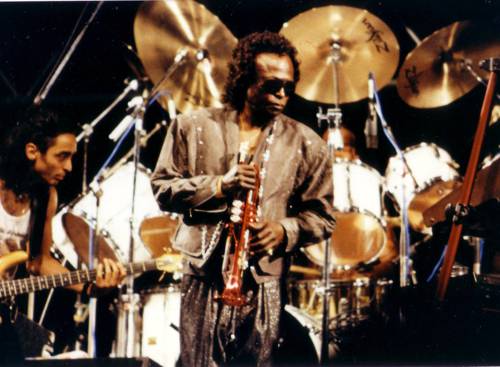
FAQ About The Influence of Musical Improvisation on Cross-Genre Fusion

What is musical improvisation?
Musical improvisation involves creating and performing music in real-time without pre-composed material. It relies on the musician's spontaneous creativity and deep understanding of musical elements and styles.

How does improvisation contribute to cross-genre fusion in music?
Improvisation fosters cross-genre fusion by allowing musicians to freely incorporate elements from different styles, blending them organically. This live creativity leads to new, hybrid genres and innovative musical expressions.

Can you give an example of a genre fusion aided by improvisation?
Jazz fusion is a prime example, where jazz improvisation techniques are combined with rock and funk elements to create a new genre. Artists like Miles Davis and Herbie Hancock pioneered this blending of styles.

Why is improvisation important in music performance?
Improvisation is crucial because it allows performers to express individuality, adapt to the dynamics of live performances, and engage with audiences in unique, spontaneous ways that pre-composed pieces might not.

How has improvisation influenced cultural exchange in music?
Improvisation facilitates cultural exchange by encouraging musicians to incorporate different cultural music elements, thus breaking cultural barriers and creating a global music dialogue.

What role does improvisation play in jazz music?
In jazz, improvisation is central. Musicians often perform solos that showcase individual creativity and interpretation, forming a dialogue within the ensemble and pushing the boundaries of the standard musical structure.

Has improvisation been influential in classical music and its evolution?
Yes, improvisation has played a significant role in classical music, particularly during the Baroque period, where musicians would often embellish melodies or play cadenzas, allowing personal expression and spontaneity.

What are the benefits of genre fusion through improvisation for musicians?
Genre fusion through improvisation provides musicians the opportunity to explore new sounds and techniques, enhances creativity, broadens performance repertoire, and increases collaborations across different musical traditions.

Could improvisation lead to entirely new musical genres?
Improvisation can indeed lead to the birth of entirely new musical genres as it encourages experimentation and merging diverse styles, resulting in innovative and fresh musical expressions.

Does musical improvisation have a history in non-Western music cultures?
Yes, improvisation is an integral part of many non-Western music traditions, such as Indian classical music, where raga performances involve spontaneous composition, and African music, where rhythmic improvisations are common.

What is cross-genre fusion in music?
Cross-genre fusion is the combination of elements from two or more different musical genres, creating a new, hybrid style. This often involves combining distinctive rhythms, instruments, or techniques from multiple genres.

How do global musicians use improvisation to influence their sound?
Global musicians utilize improvisation to blend traditional music elements from their culture with modern genres, thereby creating a unique sound that resonates with international audiences while preserving cultural identity.

What skills are necessary for a musician to effectively improvise?
Effective improvisation requires a deep understanding of music theory, proficiency in a chosen instrument, creativity, adaptability, and the ability to listen closely to others and react in real-time during performances.

Why do some musicians prefer improvisation over strictly composed music?
Some musicians prefer improvisation as it offers the freedom to explore personal creativity, adapt to the mood and ambiance of a live performance, and interact with the audience more dynamically and personally.

Can musical improvisation enhance a musician's creativity?
Absolutely. Improvisation encourages musicians to think outside the box, explore new musical concepts, and develop a unique voice, all of which enhance creativity and artistic development.

How does technology impact musical improvisation and cross-genre fusion?
Technology impacts improvisation and fusion by providing new tools and platforms for creating, sharing, and collaborating on music. Digital instruments, looping software, and online collaborations expand the possibilities for innovation.

What genres are most commonly involved in cross-genre fusions?
Common genres involved in cross-genre fusions include jazz, rock, classical, electronic, and folk. These genres are often mixed to create new styles like jazz-rock, folk-jazz, or electronic-classical.

Are there any famous bands known for their cross-genre improvisations?
Yes, bands such as Grateful Dead and Phish are known for their improvisational performances that incorporate elements of rock, jazz, bluegrass, and psychedelic music, creating a distinctive fusion sound.

How does improvisation impact the way music is taught and learned?
Improvisation impacts music education by encouraging students to develop listening skills, creativity, and adaptability. It promotes a holistic understanding of music beyond mere technical proficiency, emphasizing personal expression and innovation.

What challenges do musicians face when improvising across genres?
Musicians face challenges such as understanding diverse musical languages, maintaining coherence in sound while blending distinct styles, and balancing personal expression with the structural elements of different genres.
